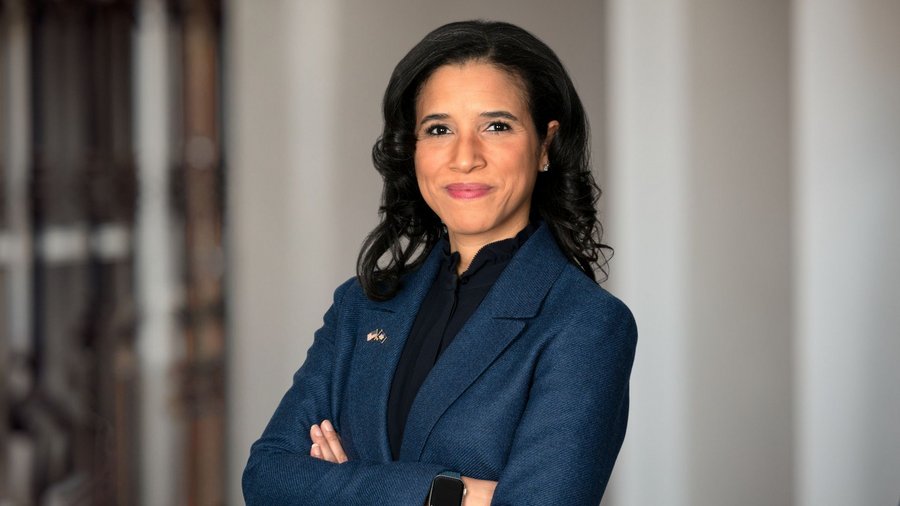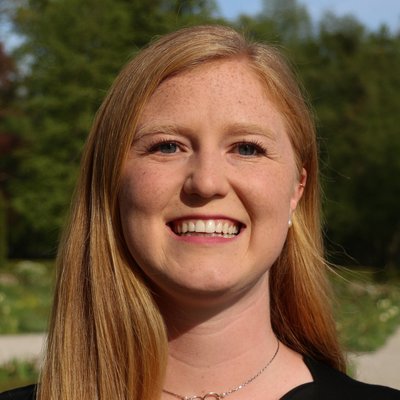Superintendent Adrienne A. Harris on regulatory challenges posed by financial technologies
Adrienne A. Harris joined the New York State Department of Financial Services (DFS) as superintendent in September 2021. Prior to joining DFS, Adrienne served as senior advisor to Deputy Treasury Secretary, Sarah Bloom Raskin before joining the National Economic Council where she managed the financial services portfolio for President Obama. After leaving the White House, Adrienne served as general counsel and chief business officer at Doma and also served as a professor and faculty co-director at the University of Michigan's Gerald R. Ford School of Public Policy's Center on Finance, Law and Policy.
Audrey Plimpton, Salzburg Global Communications Associate: How would you evaluate the evolution and impact of emerging financial technologies? What opportunities have been missed?
Adrienne Harris, Superintendent, New York State Department of Financial Services: We've seen technology and financial services come together over the last 15 years, or since the financial crisis, in really important ways for the ecosystem, for consumers, and for operational efficiency. I think we really have seen an improvement in user experience. In options for consumers, we have seen efficiency gains in terms of how the system works, whether it's transmitting money, in the capital market space, [or] in lending. These are all wonderful improvements. We now have more consumer protections in place to make sure consumers are protected with those improvements. I think one area that is still an area for opportunity and continued growth is with respect to financial inclusion. When fintech first came around, there was all this promise about financial inclusion and this theory that fintech was going to disrupt incumbent financial institutions. Instead, what we've seen is much more productive - a partnership model between fintech, or tech and innovation companies, and traditional financial services. But still, the promise that is yet to be realized is around financial inclusion and bringing new consumers into the system.
AP: Do you think that regulators have the right tools to address the challenges posed by emerging financial technologies?
AH: Regulators can and do [have the right tools to address these challenges]. We work on that every day here at the New York State Department of Financial Services by making sure that we have the human capital and technological resources we need to keep abreast of developments in this space. It's really important that as a regulator, you have the talent and the technology so that you understand the developments and you're not just reacting to them on a slow timeline, but you have the expertise in-house. That really means developing a diverse pool of talent inside the regulator by having people from academia, regulatory backgrounds, [and] industry; from different parts of the world; and having diversity in the truest sense of the word to make sure you can really understand the developments and keep pace with them. Then it means that regulators have to use technology to regulate and oversee innovations in the marketplace. That is another thing we've done here at DFS -- using AI, using CRMs, and using other tools, to make sure that we can keep up with what is going on in the marketplace and be a nimble regulator.
AP: What measures can be taken to ensure that financial innovation leads to broad-based prosperity rather than increasing economic disparities?
AH: So often we've seen technological innovation come around, and there's a homogeneous group of people that realize the majority of the gains. Other people are left behind or even preyed upon in the worst-case scenarios. I think the important role of the regulator is to make sure you're regulating in a way that makes accessibility and affordability top of mind. It makes sure that we have ample competition in a space. I'm a firm believer that we can protect consumers and build robust marketplaces at the same time. Those things aren't mutually exclusive, and it is the job of the regulator to make sure that those ideals and objectives can coexist and reinforce one another.
AP: Based on your experience as the superintendent of the New York State Department of Financial Services, what are the most pressing regulatory challenges that you've encountered and how have you addressed them?
AH: There is a new pressing challenge every day, and we spend a lot of time on cybersecurity here. We just recently amended what's known as Part 500, which is an incredibly robust cybersecurity regulation. We amended it to keep up with new threats in the cybersecurity space. We enhanced the tailoring of the regulation. We accounted for multifactor authentication. We accounted for ransom payments. We accounted for new governance and risk management protocols. Cybersecurity is always top-of-mind, and we have acted accordingly. Of course, everybody is talking about AI, both the risks and the opportunities. We've proposed guidance on AI and insurance underwriting and pricing, and we are going to finalize that soon.* We're also working on some other important pieces of AI guidance.
Then, of course, crypto. We are the only prudential regulator with virtual asset-specific authority. You have seen us take action not only on the enforcement side, but also issuing eight pieces of new guidance, as well as licensing new companies and becoming a thought leader in this space. Those are just a couple of examples of emerging technologies and the ways the DFS has addressed them and been a leader in those spaces.
*As of the date of publication, this guidance has been finalized and released.
AP: Having worked in both the public and private sectors, how do you think these experiences shape your approach to financial regulation?
AH: It really goes back to the diversity of experience for me. Having experience in both the public and private sectors makes me a better regulator. I know what motivates businesses and how they think. I know how to speak that language so that we can be aligned on our objectives and make that translation and be aligned for the benefit of consumers and markets. Being able to speak both of those languages and have that translation is a real asset for me and for others in the department who have diverse backgrounds. I think it lends to our credibility. For me, it's most important to be data-driven and to be fair and tough. When you've seen both sides of the coin, then it's that much easier to do, and it will help us achieve our objective of better protecting consumers while also building a robust marketplace.
Adrienne A. Harris attended the Salzburg Global Finance Forum on "Financial Technology Innovation, Social Impact & Regulation: Do We Need New Paradigms?" in June 2024.



